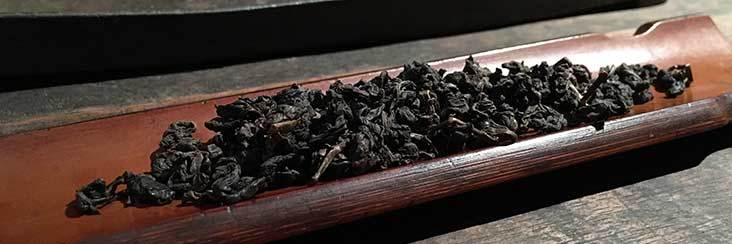
Eco-Cha Does Aged And Charcoal Roast Tea Tasting In Taipei

On Sunday, we traveled up to Taipei to present a selection of aged and charcoal roasted Oolong teas that we sourced for the occasion, hosted in an antique and art collector's home. We brewed leaves of eleven different batches of tea ranging from the most recent winter harvest to leaves harvested over forty years ago. We brewed the tea from different sources in separate rounds of two or three at a time for comparison and expedience. The first two were a Muzha Tieguanyin Oolong aged over 25 years, and an Alishan High Mountain Oolong harvested about 20 years ago.

So we sat and brewed and appreciated the look, smell and taste of leaves from batches that each had its own distinct character. It was quite an exploration that went for about three hours continuously. As one friend put it, "What better way to spend a rainy Sunday afternoon?".

We proceeded to taste a Wenshan Baozhong Oolong aged over 30 years, a Mingjian Qing Xin Oolong harvested in the mid-1970's, and a sample of tea that won the Silver Medal Award in the 2012 National Tea Trade Association's Aged Tea Competition. Each tea had a completely different profile of flavor and aroma, yet all shared a quality of smooth, rich texture and balanced composition that makes aged tea a favorite of connoisseurs . Our final round of aged teas were all Dong Ding Oolongs between 25 and 30 years old. Even these three had very different compositions, based on everything from the harvest to initial processing and roasting to subsequent low-heat roastings over the years, which for one batch included several charcoal roastings.

Our fourth round was charcoal roasted Qing Xin Oolong from the recent winter harvest. One batch was from Alishan and the other from Shanlinxi. They had been first low-heat oven roasted twice to prepare them for extensive rounds of charcoal roastings — the Alishan batch was charcoal roasted 5 times total, and the Shanlinxi 8 times. The flavor and character of these teas were still distinct and complex, and not at all overtaken by just the roasted flavor. The multiple roastings offered a depth of flavor and a balanced, rich, smoky texture — but the original Oolong tea flavor was still well intact. These teas represented the traditional art of charcoal tea roasting at its best.

There was a lot of experiential learning to be had by all of us as we explored this array of teas that represent an elite class of traditional specialty tea that can only be found in Taiwan, and even here these teas are quite exclusive.

